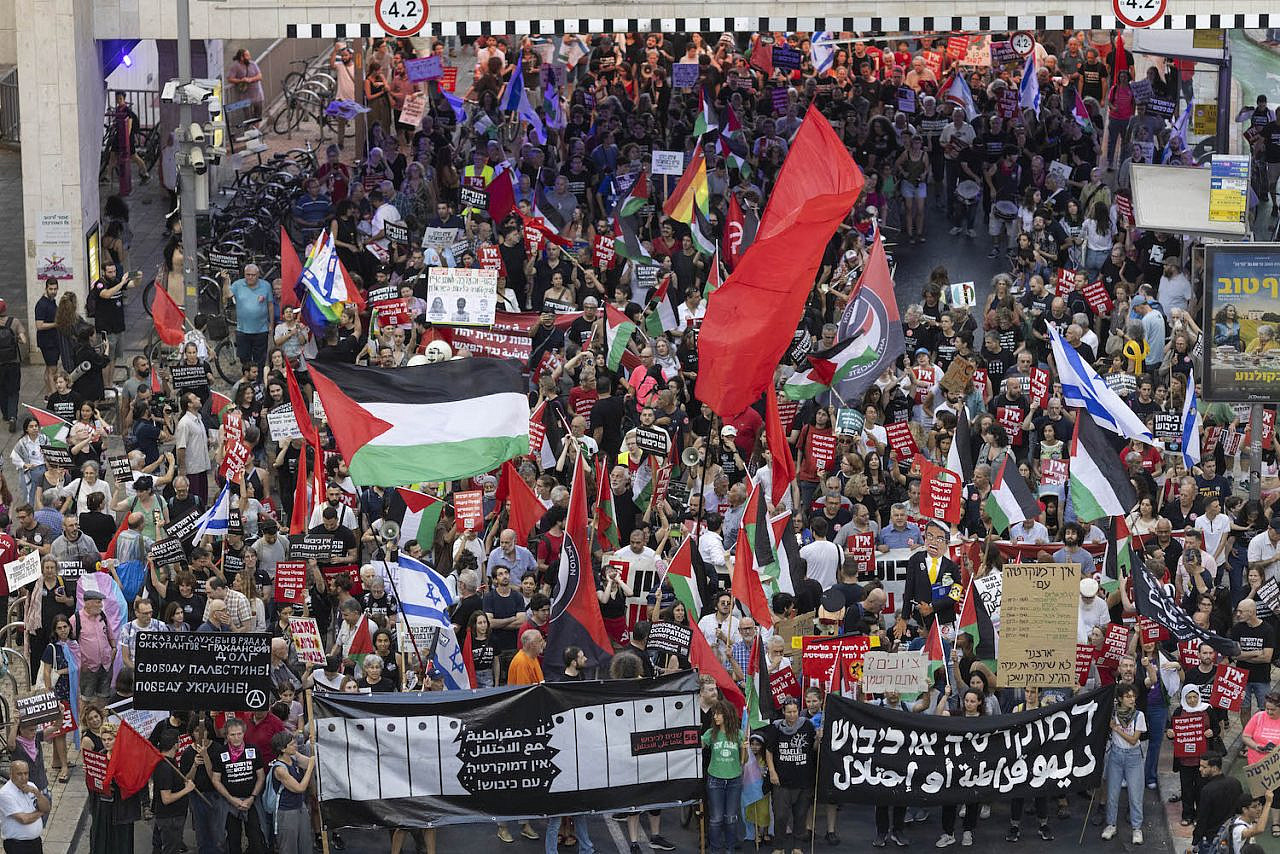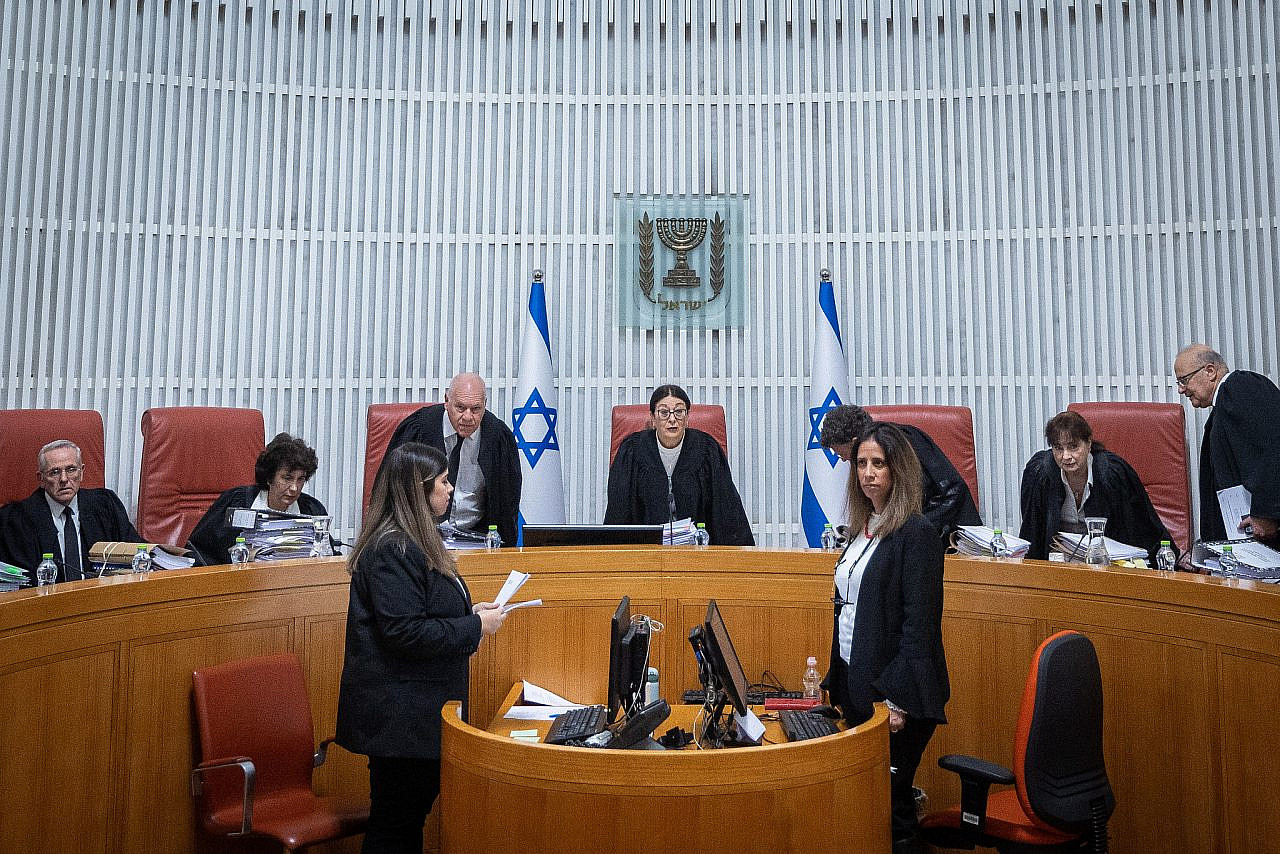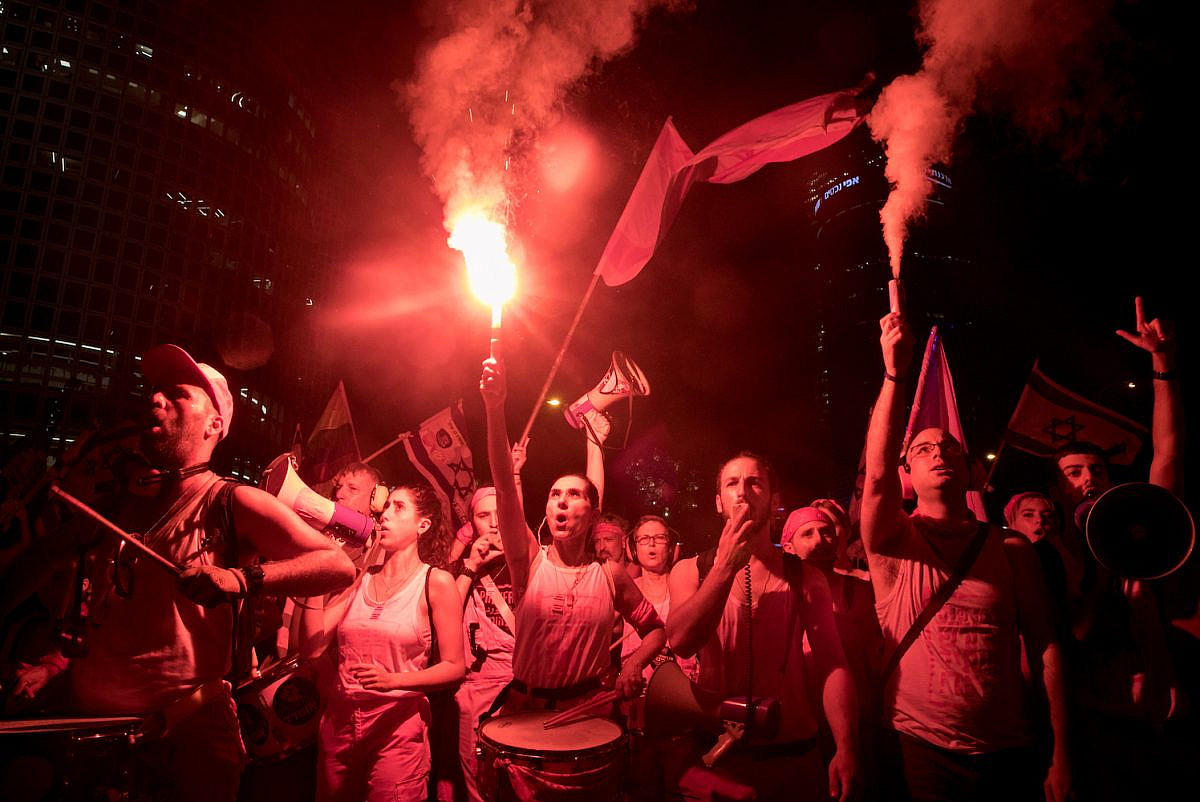In his recent article in +972, Prof. Menachem Klein wrote about the sociological characteristics of Israel’s pro-judicial overhaul camp and the opposition. His article included innovative arguments regarding the political mobilizing capacity of each camp, but I would like to focus here on the ideational aspects in his article.
According to Klein, “The proponents of the judicial overhaul resort to identity politics. They justify the judicial overhaul with the need to preserve the Jewish identity of the state and Jewish supremacy over non-Jews, whether the latter are citizens, residents, or subjects of the regime. By contrast, the opponents of the judicial overhaul speak in a discourse of rights,” which Klein says “undergirds their democratic-liberal identity.”
The extensive literature on identity focuses on a range of elements, including self and external definitions; perceptions about the past, present, and future; feelings; how identity guides behavior; and how identity is formed in the first place. However, these theories hardly deal with the correlation between, on the one hand, the coherence of identity and a group’s political energy — expressed, for example, in the ability of group members to come together to launch an effective collective struggle — and the political project which the group strives toward on the other.
As an identity’s internal coherence increases, so, too, does its political energy. And the higher the degree of compatibility between them and the chosen political project, the greater the ability to stabilize, preserve, and channel that energy into a social and political reality. This is probably one of the most important lessons that can be learned from the Arab Spring, where the failure to capture the impressive bursts of energy for a political project prevented its translation into a democratic political reality.

In this regard, the ethnocratic identity of the proponents of the judicial overhaul — based, as Klein rightly noted, on Jewish supremacy between the river and the sea — is immeasurably stronger than the “liberal-democratic” identity of the opposition. The identity of the supporters enjoys a high level of internal coherence, which in turn provides its members with political energy. The ideological-colonial zeal of the settlers in the West Bank, or the members of the “Torah nuclei” who settle in so-called “mixed cities” inside Israel, are good examples of this.
Indeed, the leaders of the coup’s supporters are currently trying to increase the correlation between the group’s identity and political energy and the political project, by promoting their unification within a regime of real Jewish supremacy — and not merely an anti-liberal interpretation of an ethnocratic-Jewish regime.
By contrast, even if the camp opposing the judicial coup succeeds in generating impressive political energy, these will be very difficult to stabilize in the long run. This is because of its low degree of internal identity coherence, and because of the lack of correlation between the camp’s “pro-democracy” identity and the political model to which it aspires — namely, a liberal interpretation of a Jewish ethnocratic regime.
Most read on +972
After all, and ironically, in their struggle for liberal democracy — which is conducted without inviting, and even rejecting, the leaders of the Palestinian citizens of Israel — the “protest leaders” are only strengthening the state’s Jewish component, acting as a vessel for a certain community that is entitled to shape the face of the state according to its founding ethos.
This contradiction is even more stark when accounting for the military dictatorship that Palestinians are subjected to in the occupied territories. Taken together, the Israeli opposition is composed of nothing but an ethno-liberal and ethno-democratic identity that lacks all consistency, especially compared to its rivals.
Squaring the circle
Yet there is a way out. In order to achieve internal coherence based on liberal and democratic values, which will generate and preserve enough political energy to withstand the bursts of Jewish supremacy of the opposing camp, the protest movement must decide to move away from supporting an ethnocracy in the guise of a “Jewish and democratic” state, and toward a state for all its citizens. This decision necessitates the creation of a civic national identity.
The pro-government camp has already realized this, long before the opponents. For example, speaking about the judicial reform on the right-wing Channel 14, host Yaakov Berdugo said: “We are in another event, which is much bigger than legal reform … a struggle [between] a Jewish state and a state for all its citizens. The reform is only a trigger.” Surveying the political landscape, Berdugo presumed that an Israeli movement that adopts and emphasizes a liberal-democratic discourse will inevitably end up breaking through its ethnic-cognitive walls and adopt a truly egalitarian identity achieved only in a state of all its citizens.

This is not a new idea, and it is one that faces numerous roadblocks, even beyond the inability of the protest movement to forgo its ethnocratic understanding of the state. In 2013, the Israeli Supreme Court rejected a request by a group of Israelis to declare that they were members of the “Israeli nation” and to allow them to change the nationality on their identity cards from “Jewish” to “Israeli.” The judges ruled that “it has not been proven that, legally, there is an ‘Israeli nation’ and it is not appropriate to encourage the formation of new ‘shards’ of a nation.”
As expected, the Supreme Court ruled that recognition of Israeli nationality runs contrary to the state’s Jewish character, while also harming its ties to diaspora Jewry. However, the court’s more interesting reasoning, which received far less attention, is that recognition of Israeli nationality also runs contrary to the state’s democratic character, since recognizing such a civic national identity could also harm the country’s Arab citizens.
“Official, or even unofficial, adoption of the term ‘the Israeli people’ may, instead of including the Arab minority from a national point of view, exclude it from a civic point of view,” the ruling argued. “Many in the Arab public will avoid, or even expressly refuse, to define themselves as Israelis due to the national ‘lack of neutrality’ of this name, or simply for political reasons.”
If this is the position that the Supreme Court — Israel’s “bastion of liberalism” — takes on such a question, how can one expect the opposition to try and square the circle of a unified civic national identity? Palestinian citizens themselves also find it difficult to answer this question, and tend to create an unconvincing disconnect between the structure of an egalitarian state and the unified civic nationalism it will foster.

In order to overcome the project of Jewish supremacy, the model of the citizen state must be adopted. But for this to happen, the Israeli question first needs to be answered — namely, how to create an egalitarian civic nationalism that connects the structure of the citizen state with its appropriate national-civic content. It is not enough to simply bash, even if justifiably, anti-judicial overhaul protest leader Shikma Bressler and her friends for their political and moral incoherence and the blindness of their liberal-democratic identity. Instead, they must be shown the alternative to Jewish supremacy.
In order to create this alternative, we need to hold a bi-national conversation on the Israeli question, which will take into account the religious, ethnic, and national characteristics of the two groups, the colonial structure from which they were born and shaped — and above all, the need to end the suffering of Palestinians and the military dictatorship in the occupied territories.
A version of this article was first published in Hebrew on Local Call. Read it here.





